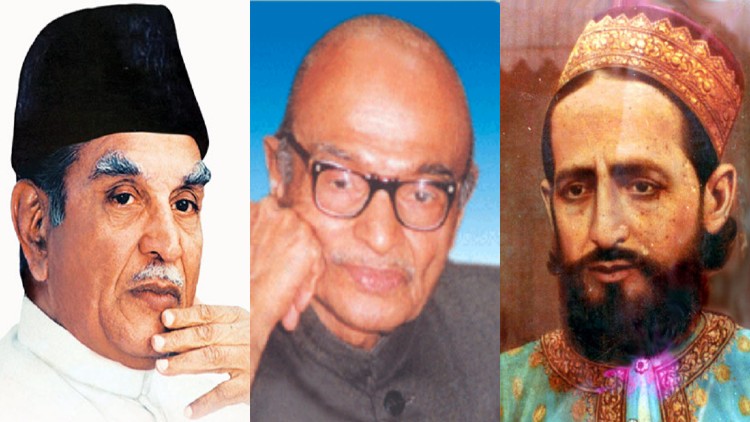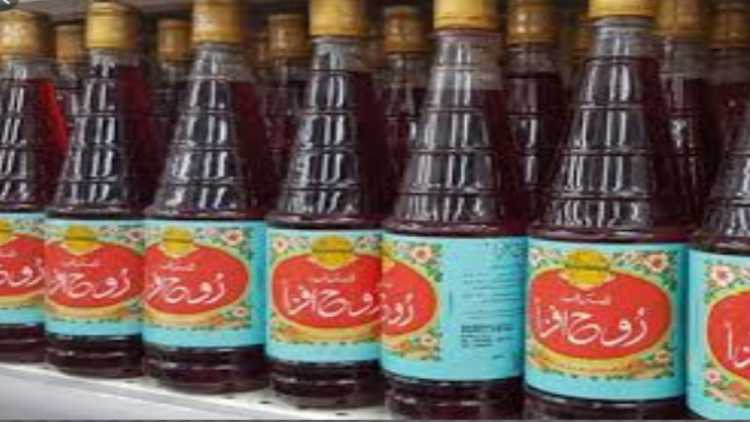
Mansooruddin Faridi/New Delhi
A common memory of the Ramazan platter across generations is the dash of red that is added to the must-have cooling drink at Iftaar. The drink invariably turns pink and makes the concoction beyond a sharbat.
It's Rooh Afza, in the real sense a soul-refreshing elixir.
Roof Afza, created as a cooling medication 117 years, is so entrenched in the culture of India, Pakistan and Bangladesh that it’s no longer considered a brand name; there is divinity to it. The experience of taking its first sip to break the fast during Ramazan is surreal.
In fact, the very name of it creates a mild sweet taste in the mouth and refreshes the soul, literally. The eyes glow and fatigue due to heat and prolonged fasting disappears.
Rooh Afza, therefore, is not a drink; it’s an experience.
The gift of ‘compassion’ as it was conceived by its creator Hakim Abdul Majeed, 117 years ago to give relief to people of Delhi from sweltering summers has stood the test of time, modernity and massive changes, including a partition of the land and division of his family.
Hakim Abdul Majeed was a practitioner of Unani medicines, who hailed from Ghaziabad, Uttar Pradesh. Invoking the spirit of compassion to alleviate the sufferings of people on account of the terrible heat of summer, he started thinking of making a syrup that will cool their bodies and freshen up their souls. This is how this ubiquitous syrup started.
Hakim Abdul Majeed was working in the Indian Pharmacy established by Masih-ul-Mulk Hakim Ajmal Khan. In 1904, he took some money from his father-in-law Rahim Bakhsh Sahib and started his herbal trade. Hakim Abdul Majeed started making medicines from plants and herbs.
His wife Rabia Begum was his biggest help those days. Rabia Begum and her sister Fatima Begum used to help Abdul Majeed in making paste and other concoctions out of the herbal ingredients and make tablets by hand.
He set up the company called Hamdard and transferred it from Old Delhi’s Hauz Qazi to a shop in Lal Kuan. His business expanded and he had to return to his original location.

Roohafza Bottles in a shop
The story of this wondrous Syrup is interesting. In fact, Hakim Ustad Hassan Khan was involved in the field of medicine and pharmaceutical medicine in the Hamdard. He was the first person to compile the first version of Roof Afza. He however migrated to Karachi after the creation of Pakistan.
It is said that the founders of Hamdard Pharmacy wanted to combine fruits, flowers and herbs to create a unique recipe with an unmatched taste and effectiveness. It must have a mild flavour to suit the taste of all ages. After that, work began on the preparation of the syrup. Hakim Ustad Hassan Khan incorporated all his wisdom and experience of herbs in the recipe and created Rohafza.
Sadly and surprisingly, this man lived a life of anonymity. On the website of Hamdard Waqf Pharmacy and Laboratories, he is listed as the creator of the recipe of Roohafza.
The key ingredients in the inspiration were unparalleled in their effectiveness. The herbs used in the original recipe include Kharfa seeds, Munaqa (raisin), Kasni, Nilufer, Gao Zaban and Green coriander and fruits like tangerine, Pineapple, Carrot and Watermelon etc. Among the vegetables are spinach, mint and green pumpkin etc. Khus and sandalwood were also used and the syrup that was prepared turned out to be simply invigorating.
Rooh Afza is now a part of our culture. We don't just drink it mixed in simple water, we also add it to milk and drink it. Some just pour its drops to garnish a sweet dish. It's used in fruit, icecream, ferni, custard, watermelon syrup with kheer. Everyone believes that a glass of ice-cold fragrant and sweet drink made of Roog Afza is enough to infuse a sense of calm inside and cool the body and the mind.
